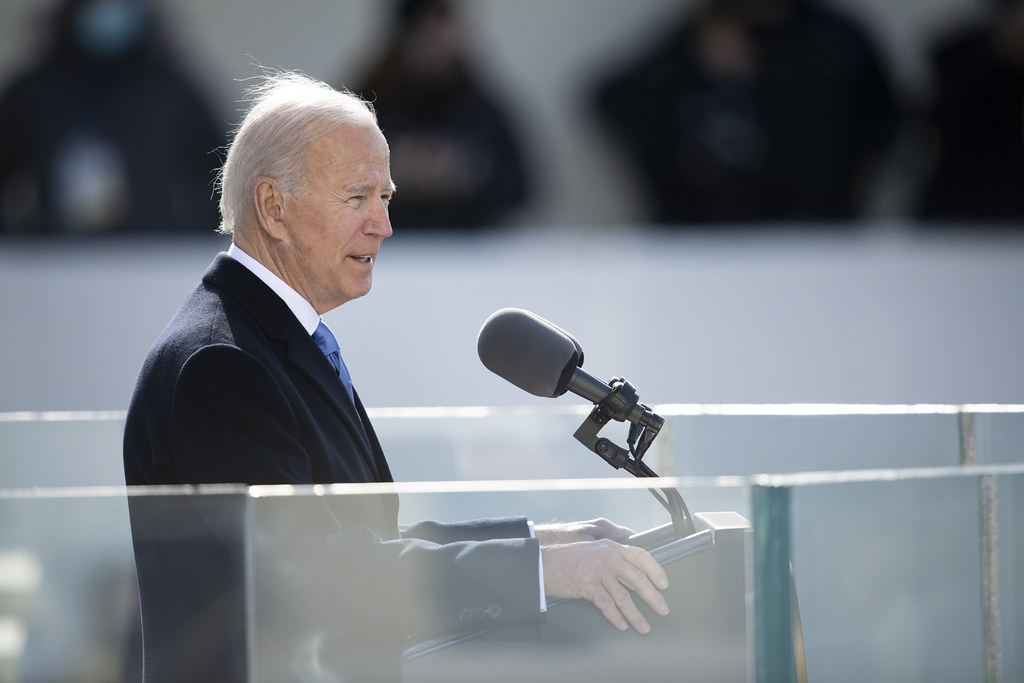Nearly a decade after the Charleston church massacre that took nine lives, including Rev. Sharon Risher’s mother and cousins, the conversation around the death penalty has reached a boiling point. Risher, once supportive of the death penalty, has since become a staunch advocate for abolishing it. Now, she’s calling on President Joe Biden to take bold action and commute the sentences of all 40 men on federal death row before his term ends in January 2025.
Advocates Fear Trump’s Return Could Bring a Wave of Executions
The urgency stems from fears of what could happen if Donald Trump reclaims the presidency. During his previous term, Trump oversaw 13 federal executions in six months, breaking a 17-year hiatus. Advocacy groups like Death Penalty Action worry Trump will resume federal executions with the same speed if given the chance.
“We’re afraid that if Biden doesn’t step in, this will happen again,” said Risher, who hand-delivered a plea to the White House in June. Despite multiple letters and petitions signed by hundreds of organizations, Biden has yet to respond.
Biden’s Campaign Promise Under the Spotlight
During his campaign, Biden vowed to end the federal death penalty and push for legislation to abolish it. Yet, his presidency has seen limited action on this front. While Attorney General Merrick Garland imposed a moratorium on federal executions in 2021, prosecutors continue to pursue death sentences in high-profile cases like the Boston Marathon bombing and the Pittsburgh synagogue shooting.
Advocates argue that Biden has the power to commute all death row sentences to life without parole, a move that would cement his opposition to capital punishment. “He absolutely can commute all those sentences,” said Rachel Barkow, a professor of law at NYU. “I just don’t know if he will.”
Trump’s Hardline Stance on the Death Penalty
During his first term, Trump expanded the use of the death penalty, calling for its application to crimes like drug trafficking and child sexual abuse. His administration’s push for executions continued even amid the COVID-19 pandemic. Critics argue that many of Trump’s proposed expansions, like applying the death penalty to non-murder crimes, would face significant legal challenges.
A Divided Nation on Capital Punishment
Support for the death penalty in the United States has dropped to its lowest levels in decades. Advocates like Risher point to racial disparities in sentencing and the lack of evidence that the death penalty deters crime. Reports show nearly 75% of defendants authorized for federal death penalty prosecutions since 1989 have been people of color.
Victims’ families are often split on the issue. After the Buffalo, New York supermarket shooting in 2022, some families called for the shooter to face execution, while others preferred life imprisonment. “Let him stay there and experience that,” one victim’s family member said.
Time is Running Out for Biden to Act
As Biden’s presidency winds down, the clock is ticking. Last-minute clemency decisions are not uncommon. Governors in states like Oregon, Illinois, and Colorado have commuted death row sentences in their final days in office. At the federal level, presidents from George Washington to Barack Obama have used their clemency powers to commute or pardon death row inmates.
“Commuting the entire death row to life without parole sentences would be a bold legacy move,” Barkow said. Such an action would demonstrate Biden’s moral opposition to the death penalty and align with his Catholic faith, which advocates for the sanctity of life.
Will Biden Act or Leave It to History?
The White House has remained silent on Biden’s plans, leaving advocates like Risher and organizations like Death Penalty Action in limbo. With time running out, Biden’s decision—or lack thereof—could define his legacy on capital punishment.
As the nation waits, one question looms large: Will Biden use his presidential power to end the federal death penalty for good, or will he leave the door open for its resurgence under a future administration?


